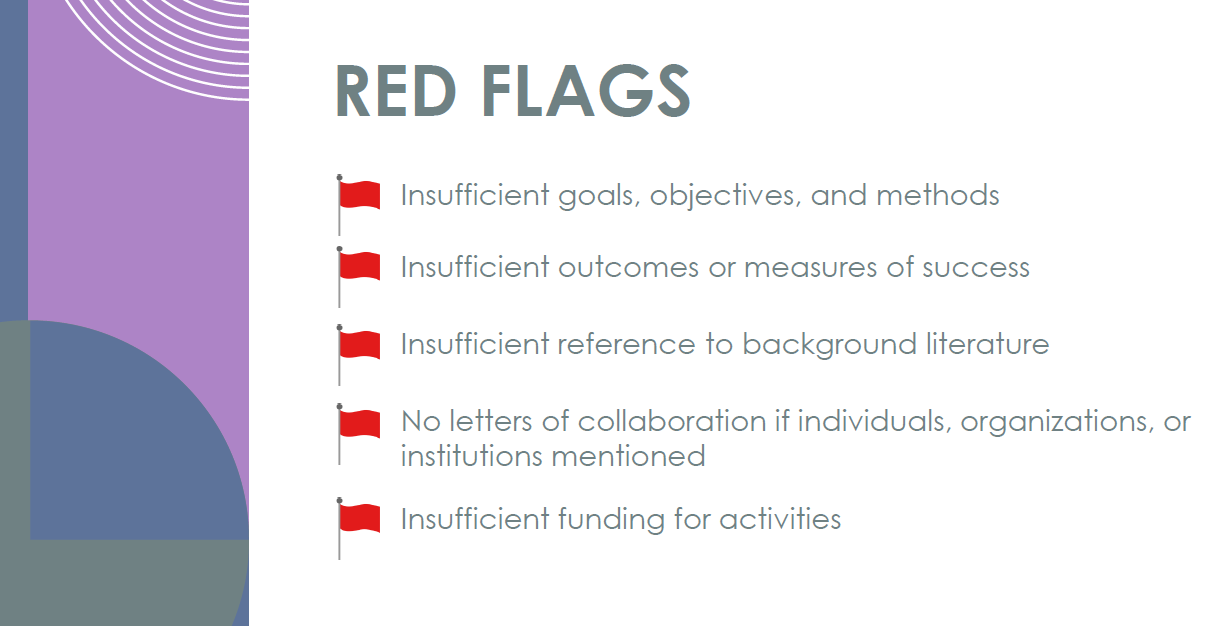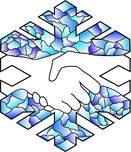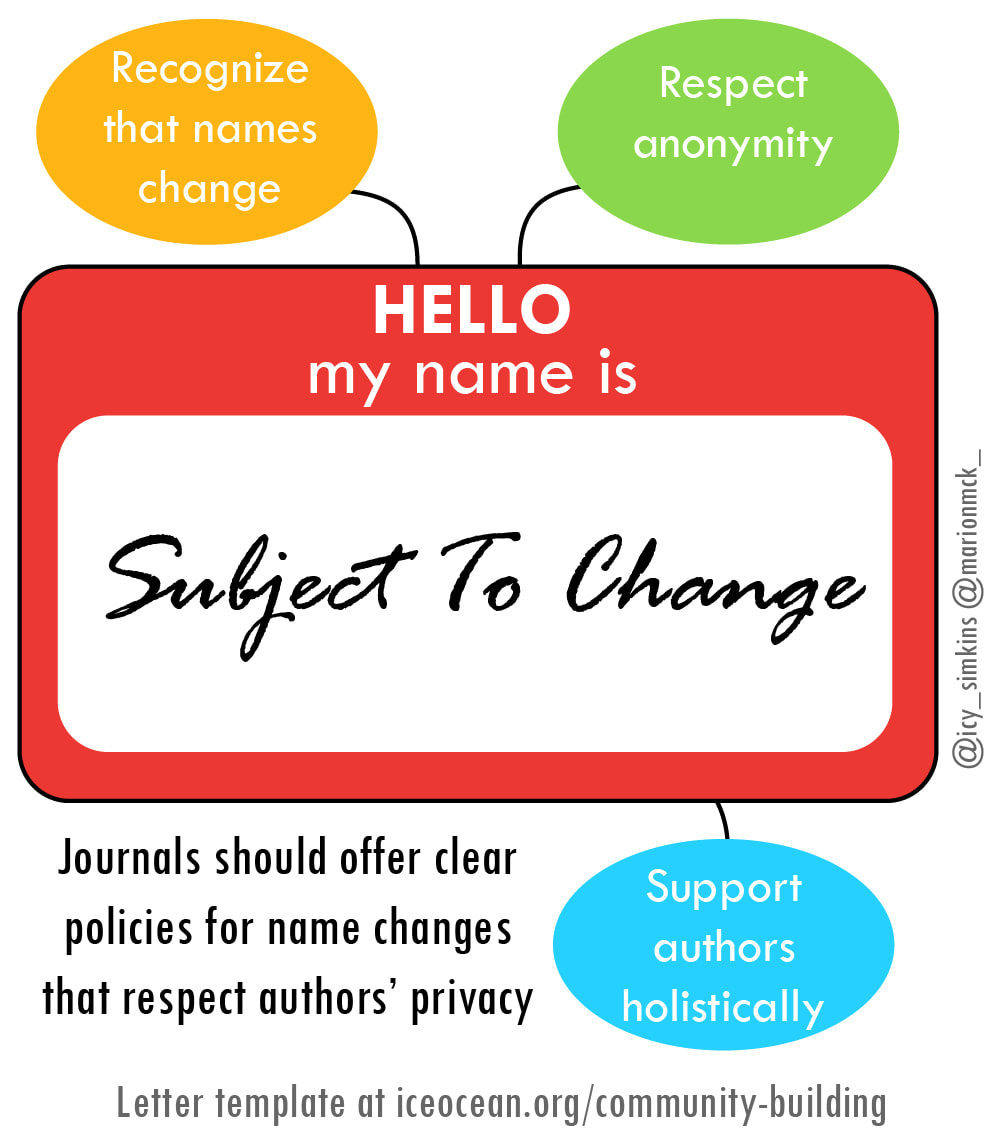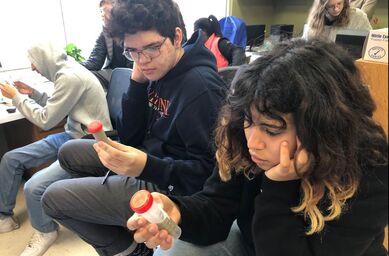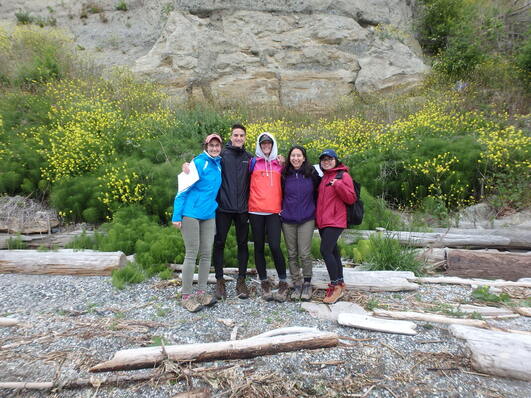We reach out to, work with, and learn from scientists, students, and the general public using an assortment of platforms and activities. Here we share our exchanges with local, regional, and global communities to build relationships with others, share our science, and empower people of all ages with knowledge about our planet - how it has changed in the past and will change in the future.
|
“Broader impacts” in cryospheric & polar sciences proposals & research (posted 16 December 2022)
Lauren, in collaboration with Kristin Timm, Jeremy Bassis, Ravindra Duddu, Leigh Stearns, and CryoCommunity, spoke at AGU 2022 about strengthening and evaluating broader impacts with the goal to make recommendations for all involved in proposing, developing, evaluating, and engaging in these activities. The slides are here if you want to check out the problems and recommendations centered around broader impact activities. |
|
CryoCommunity fosters inclusivity within the cryospheric sciences (posted 24 September 2021)
CryoCommunity is the product of the MARS (Midwest And Random Stragglers glaciology) pod's participation in URGEGeosciences in Spring 2021. Our vision is for cryocommunity.org to as a hub for Justice, Equity, Diversity and Inclusion (JEDI) resources in the cryospheric sciences, sorted by career stage and resource type. Check it out and send additional resources we can include to cryospherecommunity at gmail dot com. |
|
Call for invisible name changes for journal publications (posted 6 April 2021)
People change their names for many reasons. We urge the journal editorial boards to implement a policy that allows researchers to make name changes in a manner that is accessible, respectful, and anonymous. A name change policy is in the works for International Glaciological Society journals. Please help us push for widespread implementation of name change policies that protect researchers' safety and privacy. Here is a letter template customizable for any journal and editorial board that you can use. You may use and post the graphic to amplify the message on social media and amongst your research networks. |
The Saturday Series lives on! (posted 18 December 2020)
Lauren and Kate Kogge (faculty at Murray Community School) received a grant from Karyn and Brice Smith and the Prana Fund through the Charlottesville Area Community Foundation to continue a STEAM (Science, Technology, Engineering, Arts, Mathematics) workshop series for local elementary students. This comes at no-cost for the area students and provides them with breakfast and quality, hands-on lessons and projects each month in the winter and spring that they can do with minimal caregiver support. We are excited to modify the workshop to meet COVID-19 safety guidelines and begin our next workshop series in January 2021. Check out our Saturday Series website for more information.
Lauren and Kate Kogge (faculty at Murray Community School) received a grant from Karyn and Brice Smith and the Prana Fund through the Charlottesville Area Community Foundation to continue a STEAM (Science, Technology, Engineering, Arts, Mathematics) workshop series for local elementary students. This comes at no-cost for the area students and provides them with breakfast and quality, hands-on lessons and projects each month in the winter and spring that they can do with minimal caregiver support. We are excited to modify the workshop to meet COVID-19 safety guidelines and begin our next workshop series in January 2021. Check out our Saturday Series website for more information.
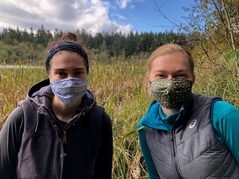 [Photo credit: G. Henny]
[Photo credit: G. Henny]
Ice & Ocean Group is featured in the Camp Casey newsletter (posted 1 December 2020)
Camp Casey is our home-base when we do field work on Whidbey Island. See here for a short write-up in their newsletter their mailing list comprised of past visitors and locals.
Camp Casey is our home-base when we do field work on Whidbey Island. See here for a short write-up in their newsletter their mailing list comprised of past visitors and locals.
Congratulations to Marion for being selected as an Earth Science Information Partners Community Fellow (posted 11 November 2020)
Marion is a 2021 Earth Science Information Partners Community Fellow and will be collaborating with the Community Data Cluster. This specific cluster focuses on supporting community needs by connecting local organizations and community organizers with local data experts.
Marion is a 2021 Earth Science Information Partners Community Fellow and will be collaborating with the Community Data Cluster. This specific cluster focuses on supporting community needs by connecting local organizations and community organizers with local data experts.
Summer enrichment courses on the Cryosphere and Climate Change taught by Marion and Santi (posted 18 May 2020)
Through the Curry School of Education’s 2020 Summer Enrichment Program (SEP) at the University of Virginia, Marion and Santi will be teaching four weeks of independently-designed virtual curriculum to middle and high school students. Marion’s course, titled “The Cool Cryosphere!” will introduce seventh and eighth graders to the cryosphere while focusing on the interactions between glacial systems, permafrost, climate change, ecology, and other related topics. The middle school students will end the program by presenting a media project on any topic related to the cryosphere. Presentations will span a large range of topics and mediums resulting in anything from a podcast on changing reindeer habitat to a magazine article outlining the plausibility of cryo-engineering. Santi’s class is titled “Climate Change: The Scientific Basis and Choices for the Future”. Here, students will explore the interconnectedness of Earth’s systems and how the objectification of Earth’s natural resources has shaped our climate. The course aims to establish a relationship based on co-creation and giving back to Earth. Throughout the course, students will devise small- and medium-scale plans that their families and communities can implement. To learn more about the SEP and their mission, visit their website.
Through the Curry School of Education’s 2020 Summer Enrichment Program (SEP) at the University of Virginia, Marion and Santi will be teaching four weeks of independently-designed virtual curriculum to middle and high school students. Marion’s course, titled “The Cool Cryosphere!” will introduce seventh and eighth graders to the cryosphere while focusing on the interactions between glacial systems, permafrost, climate change, ecology, and other related topics. The middle school students will end the program by presenting a media project on any topic related to the cryosphere. Presentations will span a large range of topics and mediums resulting in anything from a podcast on changing reindeer habitat to a magazine article outlining the plausibility of cryo-engineering. Santi’s class is titled “Climate Change: The Scientific Basis and Choices for the Future”. Here, students will explore the interconnectedness of Earth’s systems and how the objectification of Earth’s natural resources has shaped our climate. The course aims to establish a relationship based on co-creation and giving back to Earth. Throughout the course, students will devise small- and medium-scale plans that their families and communities can implement. To learn more about the SEP and their mission, visit their website.
Instagramers learn from Alie about Antarctic fieldwork (posted 12 May 2020)
After returning from two months aboard a research vessel in the Antarctic (and during a global pandemic, no less!), Ice & Ocean's Alie Lepp hosted a Q&A outreach session on Instagram. Folks curious about life at sea, what exactly scientists look for in sediment cores, Antarctic wildlife, and why Thwaites Glacier is the focus of international investigation had their questions answered and shared for all. There was, of course, no shortage of iceberg and penguin photos. The Q&A is archived on Alie's Instagram page.
After returning from two months aboard a research vessel in the Antarctic (and during a global pandemic, no less!), Ice & Ocean's Alie Lepp hosted a Q&A outreach session on Instagram. Folks curious about life at sea, what exactly scientists look for in sediment cores, Antarctic wildlife, and why Thwaites Glacier is the focus of international investigation had their questions answered and shared for all. There was, of course, no shortage of iceberg and penguin photos. The Q&A is archived on Alie's Instagram page.
Environmental Science + Art Workshops for 4th & 5th graders (updated 12 May 2020)
The Ice & Ocean Group @ UVA co-leads a series of free weekend workshops open to all area 4th & 5th graders. We cover topics such as 'Deep Oceans', 'Glaciers' (of course!), 'Earth Materials', and 'Sciencing Drones'. For more information, visit the Saturday Student Series website. Due to the COVID-19 Pandemic, Dr. Simkins will modify lesson plans for educators and caregivers that will be shared here and on twitter.
The Ice & Ocean Group @ UVA co-leads a series of free weekend workshops open to all area 4th & 5th graders. We cover topics such as 'Deep Oceans', 'Glaciers' (of course!), 'Earth Materials', and 'Sciencing Drones'. For more information, visit the Saturday Student Series website. Due to the COVID-19 Pandemic, Dr. Simkins will modify lesson plans for educators and caregivers that will be shared here and on twitter.
|
A visit from NYC High School Students (posted 1 Dec 2019)
We had a group of NYC High School students from the Urban Academy Laboratory High School visit UVA and the Ice & Ocean Lab through the Brooklyn-based Math4Science Program. They met undergraduate and graduate researchers in the group, learned about how we use tiny sediment grains to diagnose past ice sheet behavior, what it is like doing field work in Antarctica, and had a discussion on their personal experiences with climate change and how to engage in constructive conversations on the facts behind climate change. Check out this post about their trip! |
Students holding samples recovered from the Antarctic seafloor [photo credit: J. Henning]
|
|
UVA field trip to Washington state (posted 12 July 2019)
In May, Dr. Simkins took four UVA environmental science undergraduates to Washington state, where they met up with a group from the University of Houston (led by Dr. J. Wellner) and explored a 'buffet' of landscapes and Earth surface processes. Areas we visited included the formerly glaciated Puget Lowland, tidal environments in along the southern Washington coast, and igneous terrain and proglacial channels in the Channelized Scablands. Photo (left to right): L. Simkins, S. Penaparanda, S. Ericsson, T. Sherman, A. Doan |
Online media articles covering climate science are accessible by millions of people (updated 12 May 2020)
The spread of climate science in online media articles is a powerful means of connecting broad audiences with new, exciting, and transformative science-based information, typically in societally relevant narratives with limited science jargon. Because media outlets have varying accountability chains, scientists with climate-related expertise volunteer to review science information in online media articles and provide feedback to the author who can then amend the original article accordingly. Dr. Simkins has been involved with Climate Feedback since 2016 and has reviewed the below articles and reports.
The spread of climate science in online media articles is a powerful means of connecting broad audiences with new, exciting, and transformative science-based information, typically in societally relevant narratives with limited science jargon. Because media outlets have varying accountability chains, scientists with climate-related expertise volunteer to review science information in online media articles and provide feedback to the author who can then amend the original article accordingly. Dr. Simkins has been involved with Climate Feedback since 2016 and has reviewed the below articles and reports.
- 'Melting glaciers reveal LOST island in Antarctica – and humans are already visiting it' in The Sun, by Charlotte Edwards [10 Mar 2020; review]
- 'How Scientists Got Climate Change So Wrong' in The New York Times by Eugene Linden [19 Nov 2019; review]
- 'New study shows one of world's largest glaciers is actually growing — not shrinking' in The Blaze by Chris Enloe [26 Mar 2019; article & review]
- 'Antarctic Dispatches: Miles of ice collapsing into the sea / Racing to find answers in the ice' in The New York Times by Justin Gillis [23 May 2017; article & review]
- Heartland Institute's report titled "Why scientists disagree about Global Warming"* [2 May 2017; report & review]
- United States House Science Committee hearing on Climate Change [10 Apr 2017; report & review]
- 'The oceans are losing oxygen, posing growing threats to marine life' in the Washington Post by Chris Mooney [17 Feb 2017; article & review]
- 'Australia’s Great Barrier Reef has worst coral die-off ever' in USA Today by Doyle Rice [29 Nov 2016; article & review]
- 'The Phony War Against CO2' in the Wall Street Journal by Rodney Nichols and Harrison Schmitt [31 Oct 2016; article & review]
- 'About Those Non-Disappearing Pacific Islands' in The Washington Post by Bjorn Lomborg [13 Oct 2016; article & review]
- 'James Lovelock: ‘Before the end of this century, robots will have taken over’ in The Guardian by Decca Aitkenhead and James Lovelock [30 Sept 2016; article & review]
- 'Greenland’s huge annual ice loss is even worse than thought' in The Guardian by Damian Carrington [21 Sept 2016; article & review]
- 'Flooding of Coast, Caused by Global Warming, Has Already Begun' in The New York Times by Justin Gillis [3 Sept 2016; article & review]
- 'Next year or the year after, the Arctic will be free of ice' in The Guardian by Peter Wadhams and Robin McKie [21 Aug 2016; article & review]
